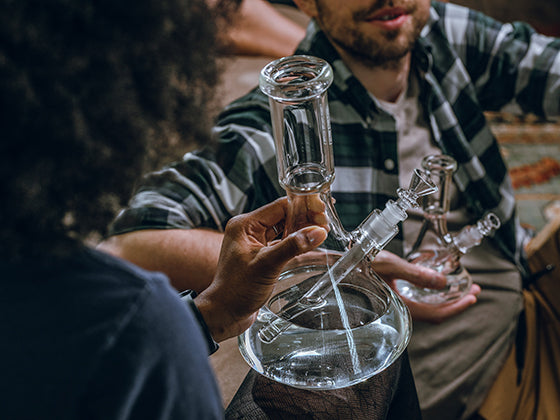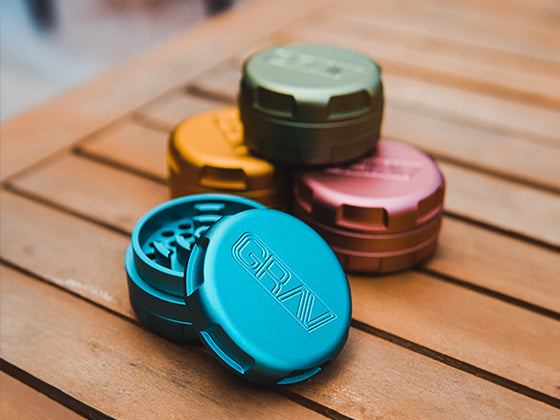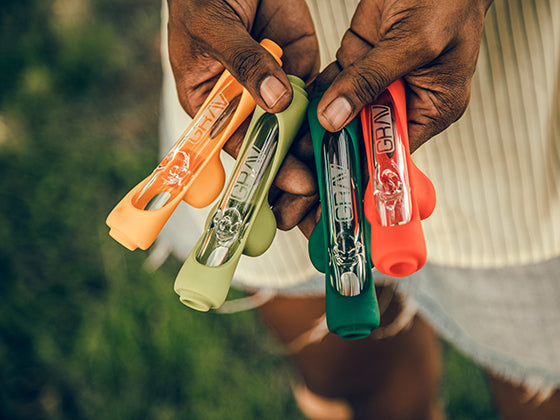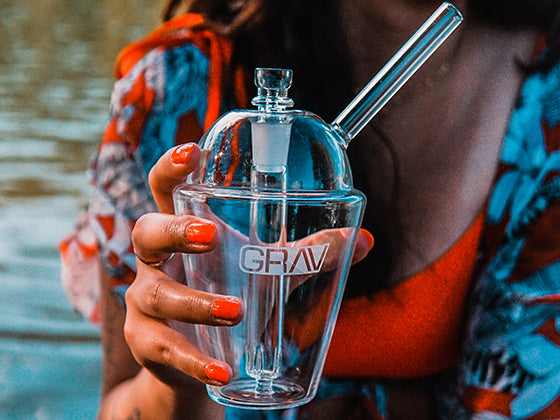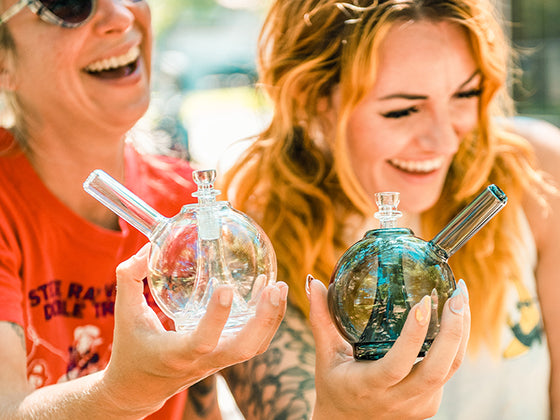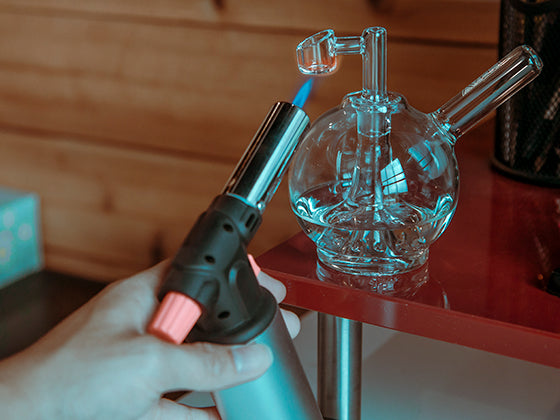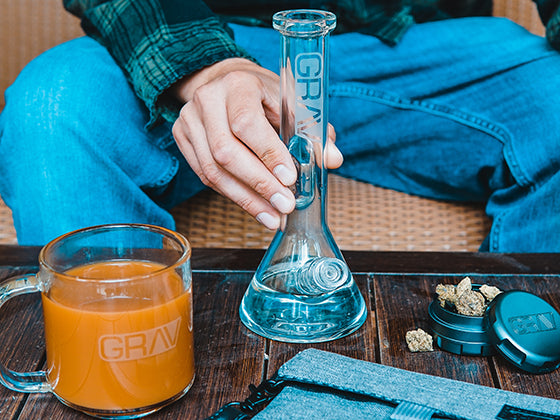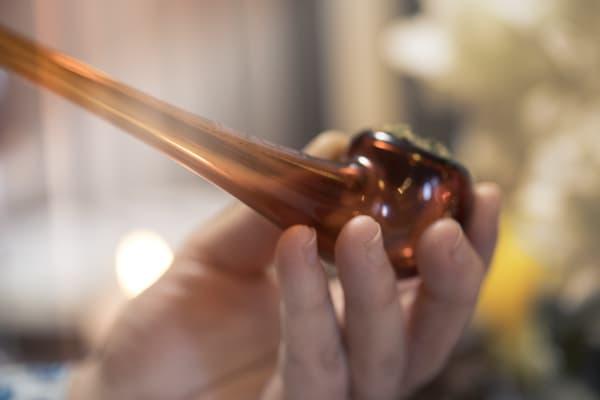It’s that time of year again; that point in late November when people start asking what you’re thankful for, and you have to decide whether you want to be flippant or heartfelt. It may not be a popular sentiment given the season, but sometimes it can be hard to come up with a serious answer that rings true. This Thanksgiving season, let’s remind ourselves that although progress can seem small and glacially paced, there are still important and meaningful changes happening nationwide that appear to unite more than divide us. For that, we can all be truly thankful.
Here at GRAV, an obvious example is the fight for cannabis legalization, which has already yielded huge gains and - gasp - even consensus. Libertarians love that the government is taking their mitts off our lungs. Conservatives love that cannabis revenue is helping states balance their budgets. And liberals just love weed! If you find yourself across the Thanksgiving table from a distant family member you rarely agree with, try asking them how they feel about cannabis legalization. Odds are they live somewhere that’s already seeing the benefits.
In the US, 9 states plus Washington D.C. have legalized cannabis for recreational use, and 31 states, as well as Guam and Puerto Rico, have legalized cannabis for medicinal use. 16 other states in the US have regulations that allow for at least some use of medicinal CBD, leaving only Idaho, South Dakota, Nebraska, and Kansas with no legal form of THC or CBD. But the push towards legalization is not limited to the United States. Just last month, Canada’s legalization bill officially went into effect, making possession and sales of marijuana legal country-wide. This makes Canada the second country after Uruguay to legalize cannabis on a federal level. In this area of politics, change is coming, and that has much bigger implications than the fact that we can take weedcations all across North America.
While enjoying recreational use without anxiety is a huge gain from the legalization movement, the true benefits run much deeper. For decades, arrests for just possession of marijuana have cost people huge amounts of money, their ability to gain employment, and even their freedom and future, all for being caught with a plant that 44% of Americans over 12 have used at some point in their life. These arrests and the severity of their prosecution have always skewed unjustly towards people of color. Legalization represents a huge step towards combating these discriminatory practices and could significantly decrease the number of people in prison for nonviolent offenses.
Many states that have already legalized recognize the systemic racism inherent in marijuana prosecutions and are taking steps to correct it. Both California and Massachusetts plan to invest a portion of their revenue from cannabis taxes in low-income communities of color because these communities have been hurt the most by prejudiced enforcement of marijuana laws. In California, someone applying for a marijuana license can’t be denied because of a prior drug felony. Californians who are in jail for marijuana crimes that would now be legal can appeal to be released. Even those with past cannabis related crimes on their record can petition to have those crimes redesignated, vastly improving their chances of finding employment in the future. In Portland, a percentage of the tax revenue from recreational marijuana is used to fund women-owned and minority-owned marijuana businesses. These advances in cannabis-related justice are certainly something to be thankful for, and we hope that as more states move towards full recreational legalization, they continue to do so with social consciousness and anti-discrimination policies.
Legalization proves time and again to benefit each state that adopts it. In addition to millions in tax revenues, legalization can have surprising public health benefits. For example, legal access to cannabis for pain management often diminishes the need for addictive and potentially deadly opioids. States with legal marijuana have almost 25% lower rates of death from opioid overdoses than states that haven’t legalized, and legal marijuana is linked with a 23% reduction in hospitalizations related to opioid abuse and dependence. It isn’t a stretch to say that legalizing cannabis saves lives, meaning there is so much to be thankful for every time another state or country goes legal.
It’s even been suggested that legalization is good for the environment. Transitioning marijuana growth into open air farming systems rather than illegal grow rooms hidden indoors and constantly bathed in artificial light could significantly cut down on the carbon footprint of cannabis production. Growing and smuggling marijuana illegally near the US / Mexico border harms the surrounding environment, as these processes often use toxic chemicals and damaging materials to protect and hide an illegal substance. The more cannabis is legally regulated, the more its production and movement can be held to legal environmental standards. This is just another illustration of how legalization touches so many other social and political issues.
When we can use a unifying policy like ending cannabis prohibition to make progress in one direction, it tends to reveal common ground we can all rally around in other areas. It’s healing to remember that there’s this major issue - connected to justice, health, and the environment - where we tend to all agree for the most part, and where we can cheer for each other’s victories and feel thankful. While cannabis legalization won’t solve every problem in the world, it is one movement that continues to make gains and move forward while so many other issues seem to be stuck in place or moving backward. Here at GRAV, headquartered in beautiful Austin, Texas, we look to those places that have legalized with appreciation and admiration and give thanks for the possibility that one day we could be next.

